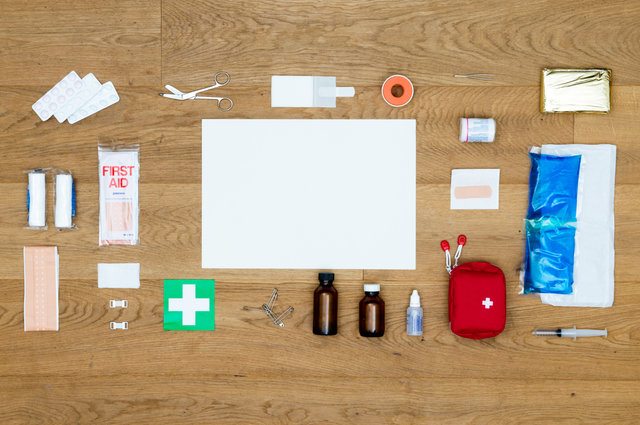8 Things to Include in Your Home Emergency Kit
By their very nature, emergencies happen when you least expect them. That doesn’t mean you have to be unprepared for them. You can actually take steps now to make sure your family is ready in the event of a power outage or natural disaster.
Below are the 8 essentials you should start assembling for your home emergency kit.
Flashlights
Don’t get left in the dark when the power goes out. Add a battery-powered flashlight and lantern to your emergency kit. Glow sticks are especially helpful to have on hand in case you have to evacuate in the dark and need to keep track of everyone in your group.
First Aid Kit
A well-stocked first aid kit is a must-have item for your home emergency kit. Most kits sold at your local pharmacy are adequate, but make sure the one you buy at least has: adhesive bandages, sterile gauze pads, cloth tape, a pain killer like Acetaminophen, antiseptic wipes, scissors, a thermometer, tweezers, non-latex gloves, and an instant cold pack. If you or a family member have special needs like blood pressure pills, insulin, contact lenses, or a hearing aid, be sure to add what they might need to your first aid kit.
Bottled Water
Fresh water is essential if your water supply gets cut off during a natural disaster. Experts recommend you stock 4 litres of water per person per day for a minimum of three days. That allows two litres for drinking and two litres for washing.
Non-Perishable Food
To keep your family’s energy up during an emergency, be sure to stock nutrient-rich, non-perishable foods like peanut butter, whole-wheat crackers, trail mix, cereal, dried fruits, and canned tuna or chicken. Remember to check periodically the expiration dates on the food you store for emergencies to ensure freshness.
Personal Hygiene Items
Staying clean without running water can be a challenge, but is not impossible if you stock a supply of hand sanitizer, baby wipes, facial tissues, toothbrushes, toothpaste and towels in your emergency kit.
Portable Battery-Operated Radio
Stay connected to local weather updates and other important news by adding an emergency radio to your kit. Make sure you stock enough extra batteries to last for three days of use.
Critical Documents
Copies of all your vital documents, including insurance policies, IDs, prescriptions, and contact information for your medical providers, should be kept in a waterproof container with your emergency kit just in case the originals are destroyed in a natural disaster.
Entertainment Extras
Keeping yourself and your family entertained during a power outage is often an afterthought. But, going days without power or connection to the outside world can be difficult without entertaining items like a deck of cards, board game, or a good book. These items are great morale boosters and you’ll be glad you added them to your emergency kit.
Once you assemble your kit, make sure all the members of your family know where to find it.
This is also a great time to double-check your insurance coverage to see if you need to make any changes to restore your home and belongings following a natural disaster or other emergency.
